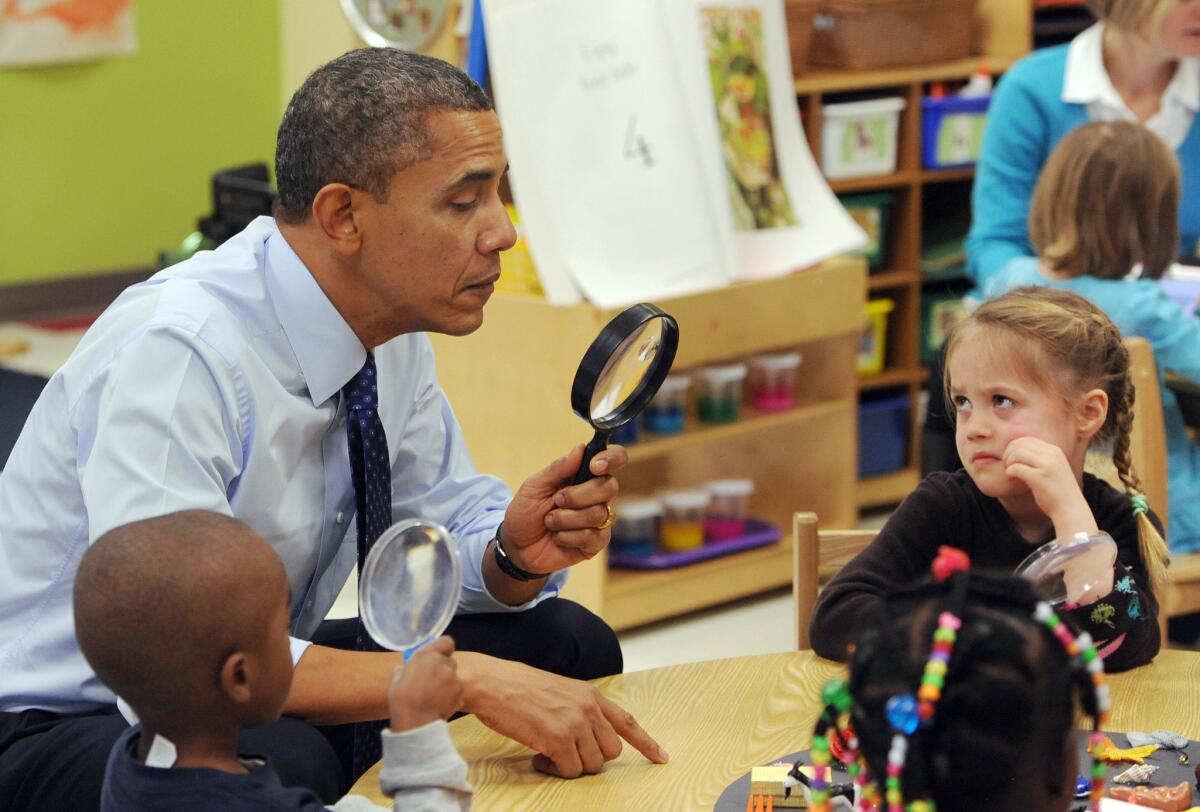Over-praising preschool

Increasing access to preschool could be the most important federal investment to make in education right now — or not. Unfortunately, despite what President Obama would have the public believe, the evidence is complicated and somewhat mixed.
In several recent speeches, the president has sketched out a plan to provide supplemental funding to states that offer a free year of pre-kindergarten for low- and moderate-income families. In doing so, though, he has echoed some of the most repeated but misleading claims made about preschool. “Every dollar we invest in high-quality early education can save more than $7 later on,” Obama said. And in states such as Georgia and Oklahoma, which offer nearly universal preschool, students are “also more likely to grow up reading and doing math at grade level, graduating from high school, holding a job, even forming more stable families.”
The $7 savings and long-term benefits were found in studies of multiyear, comprehensive — and steeply expensive — programs that also provided parent training and extensive social services. That’s far different from what Obama has proposed. As for universal preschool, some research has shown that although children start kindergarten far better prepared, the advantages often fade around third grade. Meanwhile, the preschool programs in Georgia and Oklahoma haven’t been around long enough to measure the impact on jobs or families.
It’s unclear where the billions of dollars would be found each year to pay for pre-kindergarten or whether the government would ever see a financial return on its investment; a 2008 study of the Georgia program suggests that it might not. But that doesn’t make preschool expansion a bad idea. Children who are far behind before they even begin school have little chance of excelling; they deserve a more equal start. Various studies have found that there were more significant and lasting benefits for the most disadvantaged children, especially those in rural areas, and in Georgia there were major gains in English skills among Spanish speakers. These are worthwhile benefits, but they also could be achieved through a less expensive program that targets children who stand to gain the most.
States should be concerned about how much the U.S. Department of Education will try to dictate the curriculum in exchange for its money. The proposal calls for a “rigorous curriculum,” but what does that mean when applied to 4-year-olds? And why does the president insist that preschool teachers have education and training equivalent to that of public school teachers — costing taxpayers far more — when the evidence is mixed on whether it improves quality? Georgia, one of the states he praises, does not require a college degree for preschool teachers.
Obama’s heart is in the right place, but tight budgets and common sense call for more than good intentions. The president needs to present a cost-effective preschool plan strongly rooted in the evidence rather than on wishful but unsupported thinking.
More to Read
A cure for the common opinion
Get thought-provoking perspectives with our weekly newsletter.
You may occasionally receive promotional content from the Los Angeles Times.










